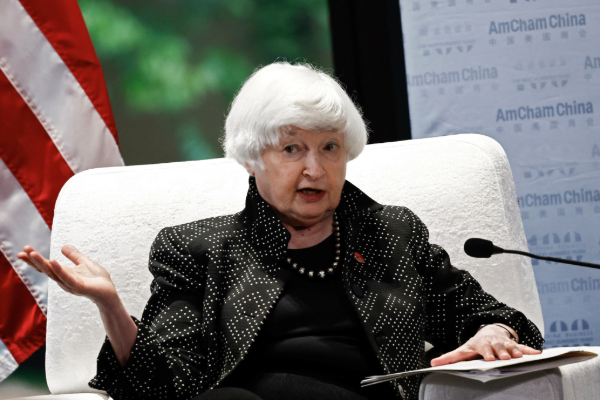U.S. treasury secretary Janet Yellen said that both the US and China have jointly worked to deal with a large bank failure in either country.
“We’ve held technical exchanges between our sides, including an exercise on how we would jointly deal with the failure of a large bank in the U.S. or in China,” Yellen said in a question and answer session at an American Chamber of Commerce event in the city of Guangzhou.
Yellen is in China to talk to senior Chinese officials to discuss ways and means to counter spillovers from China’s excess manufacturing capacity.
At the American Chamber of Commerce event, Yellen said that Beijing is too large to export its way to rapid growth and would benefit by reducing excess industrial capacity that is pressuring other economies.
She added that this “is currently leading to production capacity that significantly exceeds China’s domestic demand, as well as what the global market can bear”.
Yellen is likely to meet the Chinese vice-premier and list out the problems that US and other countries are increasingly facing with China’s excess factory capacity and growing exports.
The Chinese government has already laid out a GDP target of 5% for 2024. This comes as the country is fighting hard to overcome a property crisis and weak consumer demand.
The Chinese government has admitted that the economic recovery will be tough and external factors have negatively affected the country’s development. In order to attract more foreign investment, Beijing has promised to create a stable, transparent and predictable policy environment for enterprises.
The International Monetary Fund currently forecasts China’s 2024 real GDP growth at 4.6%, falling to 4.1% in 2025. It has also said that the uncertainty surrounding the Chinese economy is high.
The financial institution says that the ongoing housing sector crisis could further dampen private demand and confidence and lead to budget strains.
With inputs from Reuters
















